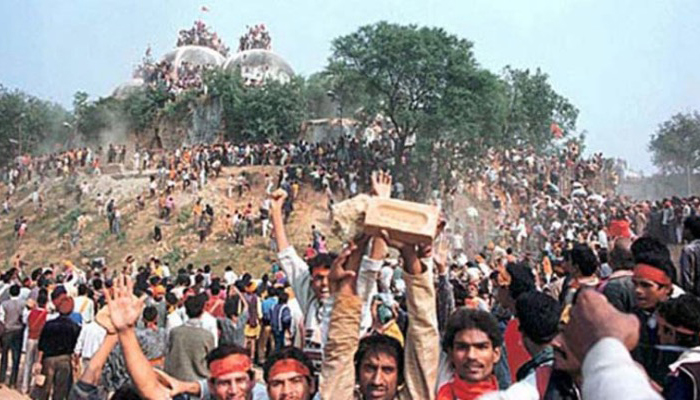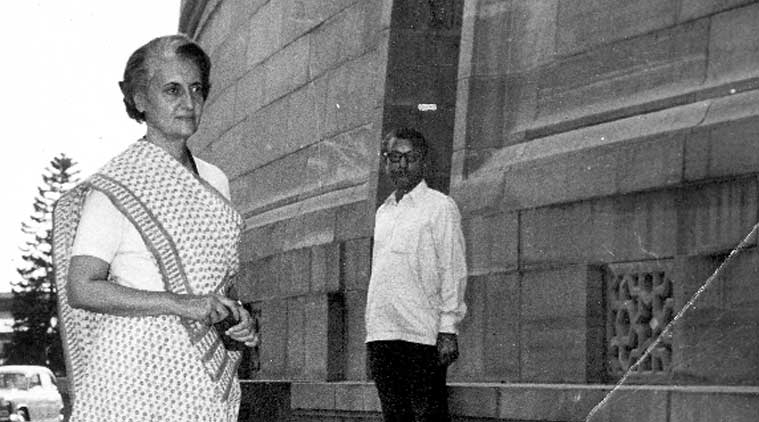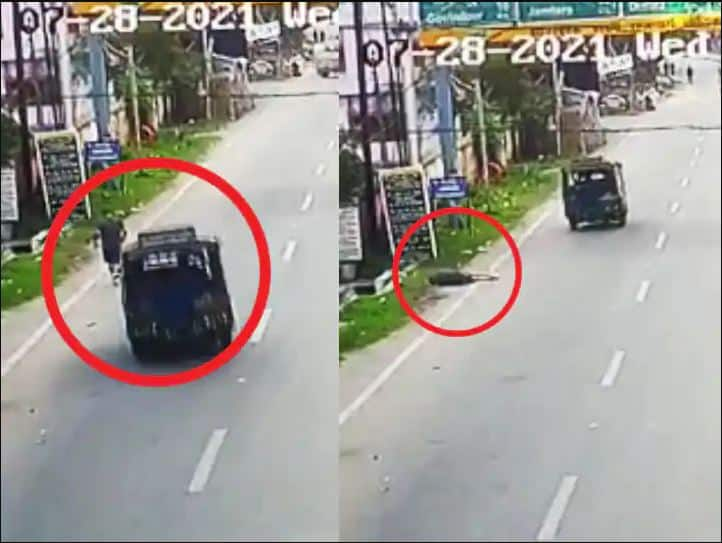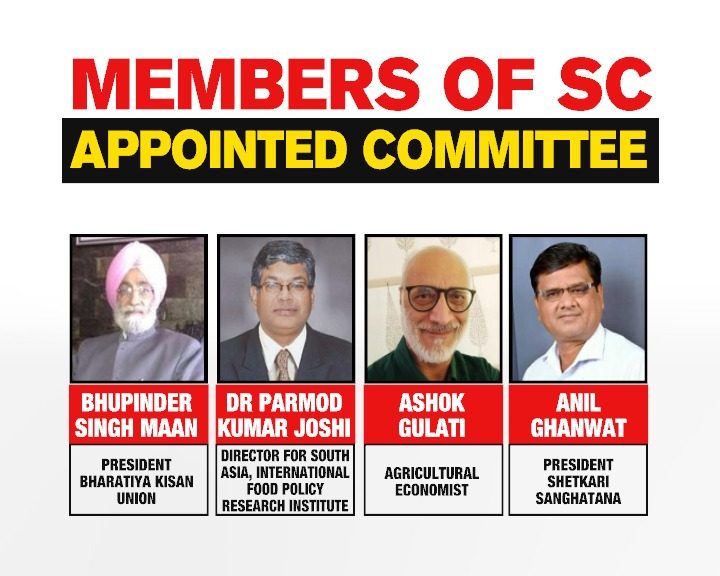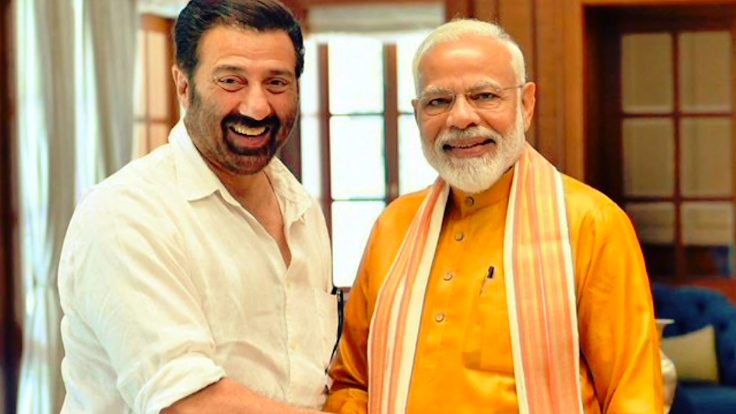The Babri Masjid was demolished in December 1992 by “kar sevaks” who claimed that the mosque in Ayodhya was built on the site of an ancient Ram temple.
The CBI, which went into the case, produced 351 witnesses and 600 documents as evidence before the court.
Charges were framed against 48 people, but 16 had died during the course of the trial. Over two dozen of 32 accused were present. Advani (92), Joshi (86), Bharti (61), Singh (88), Nritya Gopal Das and Satish Pradhan were not present in court.
[splco_spacer]
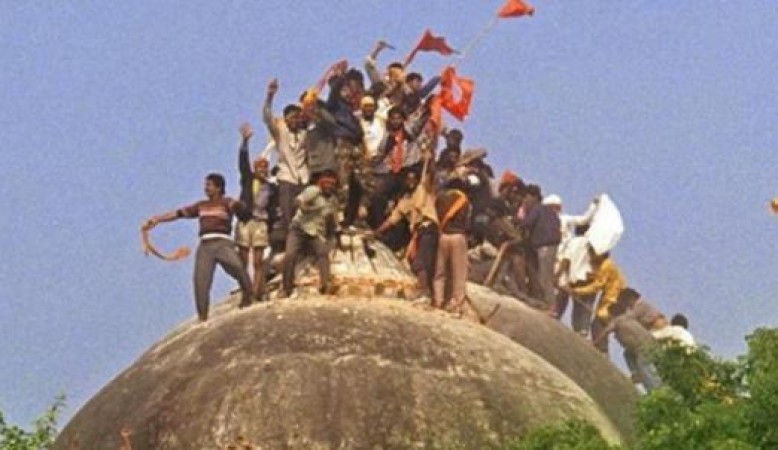
[splco_spacer]
But all the 32 accused in the Babri mosque demolition case, including BJP veterans L K Advani and MM Joshi, were on Wednesday acquitted by a special CBI court in Lucknow.
CBI judge SK Yadav had on September 16 directed all the 32 surviving accused to remain present in the court on the day of the judgment.
Singh, during whose tenure as chief minister of Uttar Pradesh the disputed structure was demolished, was put on trial in September last year after his tenure as governor (of Rajasthan) came to an end.
The 32 accused persons include former deputy prime minister Advani, former Union minister Joshi and Uma Bharti, former Uttar Pradesh chief minister Kalyan Singh, during whose tenure the structure was pulled down, besides Vinay Katiyar and Sadhvi Rithambara.
Champat Rai, the general secretary of the trust in charge of constructing the temple, is also among the accused.
[splco_spacer]
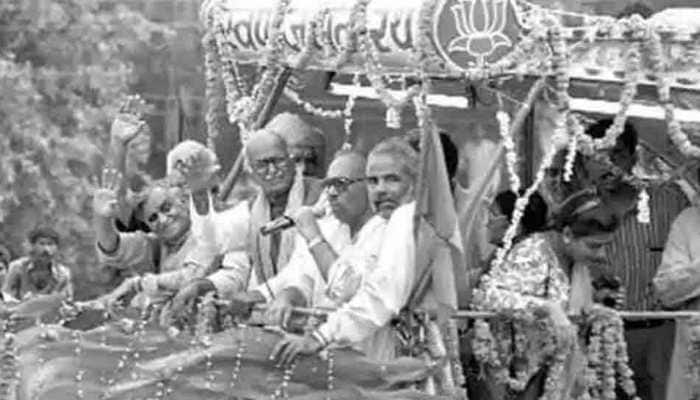
[splco_spacer]
The court said there was no conclusive proof against the accused.
The trial under the serious criminal conspiracy charges commenced against them after having been dropped by the trial court in 2001.
The verdict was upheld by the Allahabad High Court in 2010, but the apex court ordered restoration of the conspiracy charge against them on April 19, 2017.
The top court ordered daily hearing in the high profile case and directed the special judge to conclude it in two years.
The CBI argued that the accused conspired and instigated ‘kar sevaks’ to demolish the 16th century mosque. But the accused pleaded innocence maintaining that there is no evidence to prove their guilt and claimed they were implicated by the then Congress government at the Centre as a political vendetta.
Before the 2017 verdict of the apex court, two sets of cases were being heard in Lucknow and Raebareli.
The trial of the first case involving unnamed ‘kar sevaks’ was going on in a Lucknow court, while the second set of cases relating to the eight VVIPs, including Advani, Joshi, Vishnu Hari Dalmiya, Ashok Singhal, Katiyar, Uma Bharti, Giriraj Kishore and Sadhvi Ritambhara, were going on in a Raebareli court.
The apex court, had while restoring the charge of criminal conspiracy, directed clubbing of two cases relating to the demolition and had also ordered that the trial be concluded in two years.
In a significant judgment last year, the Supreme Court allotted the disputed site in Ayodhya for construction of a Ram temple, while calling the demolition of the mosque a violation of the rule of law.
An alternative five-acre site was marked in the city for building a mosque.

